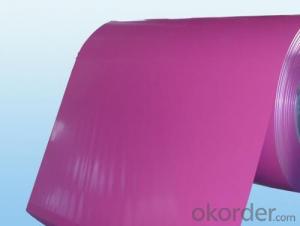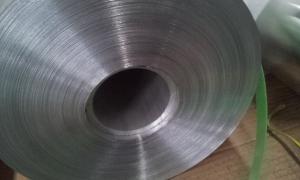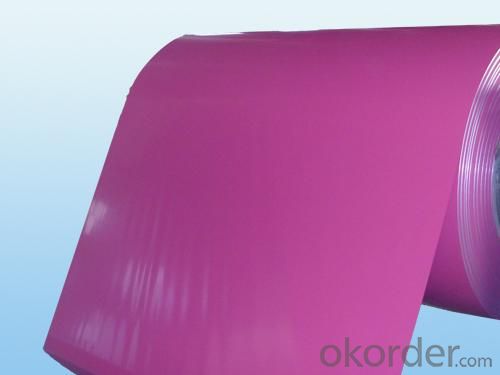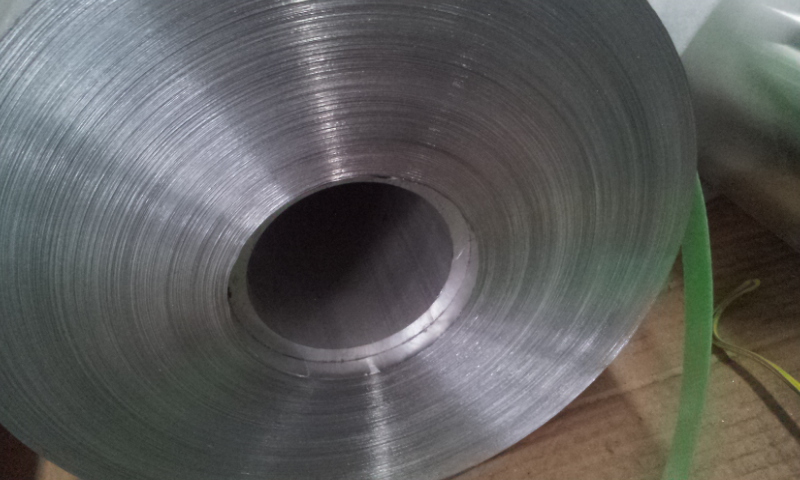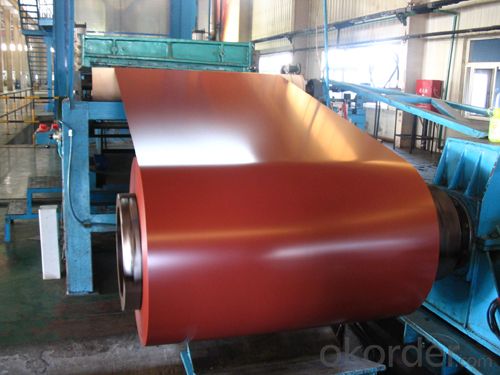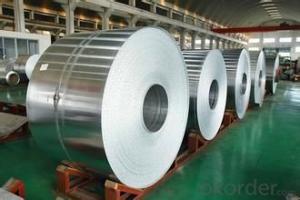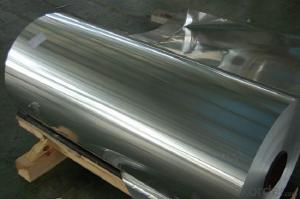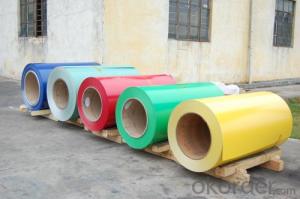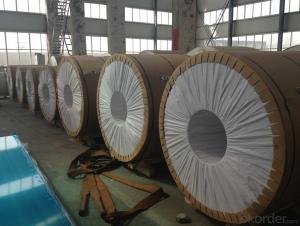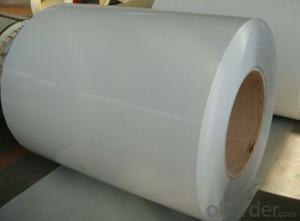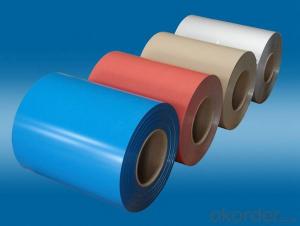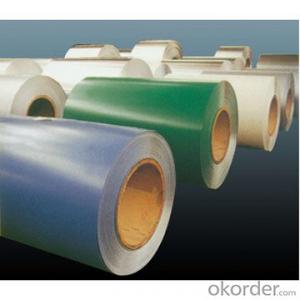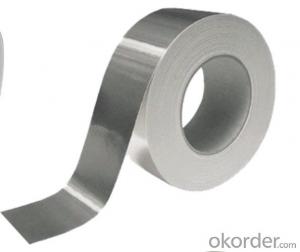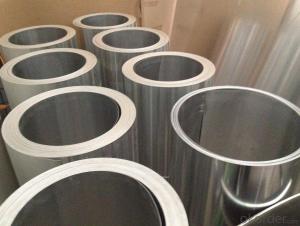Aluminum Coil Pipe for Outer Wall Color Prepainting
- Loading Port:
- Shanghai
- Payment Terms:
- TT OR LC
- Min Order Qty:
- 5 m.t.
- Supply Capability:
- 500 m.t./month
OKorder Service Pledge
OKorder Financial Service
You Might Also Like
Specification
1.Structure of Color Prepainting Aluminium Coils for Outer Wall
Color Prepainting Aluminium Coils for Outer Wall is one semi-finished aluminium material. This strip can be rolled down to aluminium coil,sheet,circle ect. The alloy AA1050 is widly used in building, industry ect. Its weight is much lower than steel. So many customers choosed aluminium material instead of steel.
2. Main features of Color Prepainting Aluminium Coils for Outer Wall
a.Competitive price---We have our own mills and can produce mill finished aluminium coils, so we can control the production cost better.
b.Professional after-sale service---We have more than 15 years exportation experience and you need not worry about the exporation problems.
c.Fast delivery time---We can control the delivery time within 35 days.
3. Image
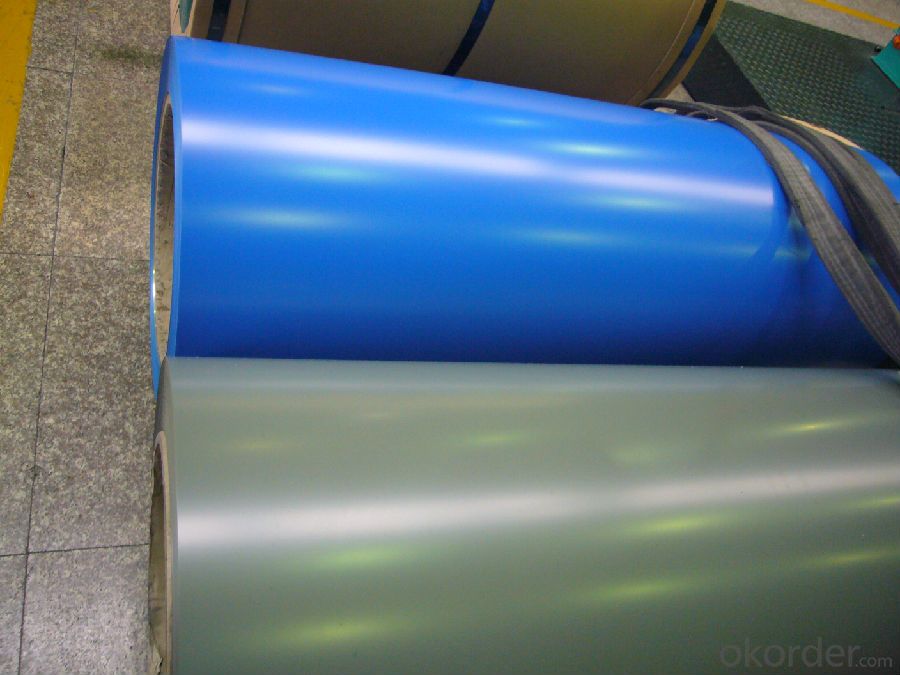
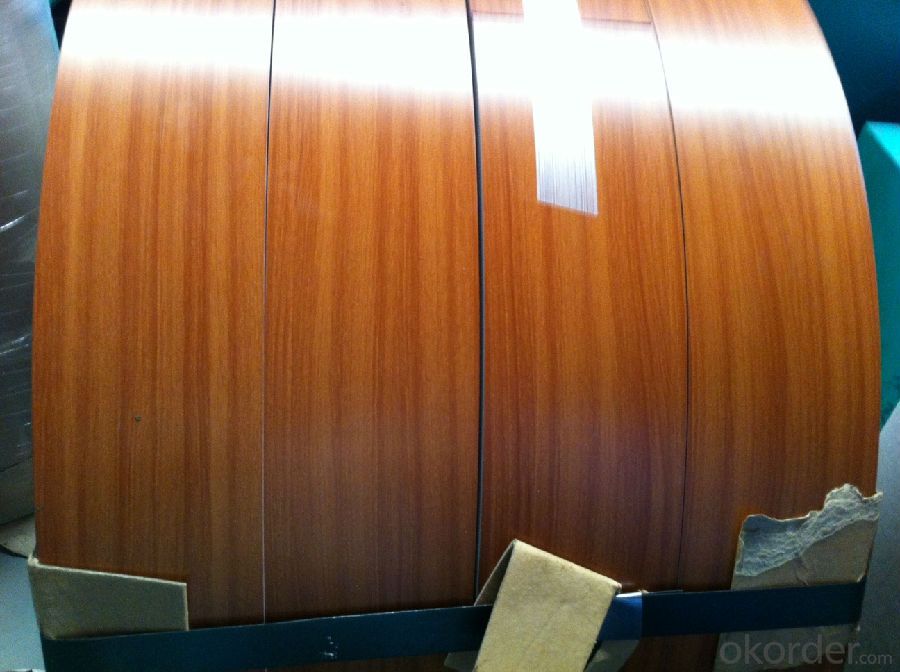
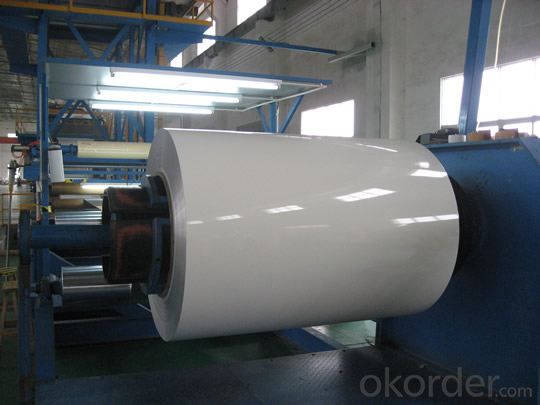
4. Product Specification
| ALLOY | Temper | Coating Thickness | Coating | Weight |
| AA1050 | H14 | 20-25 MICRONS | PE | 2 TONS |
5.FAQ:
What is the quality standard?
---Usually our standard is GB3880-2006
What is the largest width?
---It is 2300mm
What is the MOQ?
---Usually we can accept 80 tons.
- Q: What are the different coil diameters available for aluminum coils?
- The coil diameters for aluminum coils can differ based on specific needs and applications. Typically, aluminum coils are offered in various diameters to accommodate different requirements. These diameters can vary from a few inches to several feet. Manufacturers and suppliers may have different options for coil diameters. It is crucial to consider that the chosen diameter will affect factors like coil weight, handling, and compatibility with machinery or equipment. Therefore, it is recommended to consult with suppliers or manufacturers to determine the available coil diameter options for aluminum coils based on intended use and requirements.
- Q: Are aluminum coils suitable for high-strength applications?
- No, aluminum coils are not typically suitable for high-strength applications. Aluminum has lower tensile strength compared to other metals like steel, making it less ideal for high-stress or heavy-duty applications where strength is a critical factor.
- Q: Are aluminum coils suitable for architectural cladding?
- Yes, aluminum coils are suitable for architectural cladding. Aluminum is a lightweight and durable material that is often used in the construction industry for its versatility and aesthetic appeal. Aluminum coils can be easily formed into various shapes and sizes, making them ideal for architectural cladding applications. One of the key advantages of using aluminum coils for cladding is their resistance to corrosion. Aluminum naturally forms a protective oxide layer, which helps to prevent rusting and deterioration over time. This makes aluminum a long-lasting and low-maintenance option for architectural cladding. Additionally, aluminum coils offer a wide range of finishes and colors, allowing for greater design flexibility. They can be painted or coated to match any architectural style or design concept, making them a popular choice among architects and designers. Furthermore, aluminum is an environmentally friendly material. It is fully recyclable and has a much lower carbon footprint compared to other cladding materials like steel or concrete. This makes aluminum coils a sustainable choice for architectural projects. In summary, aluminum coils are indeed suitable for architectural cladding due to their durability, resistance to corrosion, design flexibility, and environmental benefits.
- Q: What are the common surface treatments applied to aluminum coils?
- The common surface treatments applied to aluminum coils include anodizing, painting, and powder coating.
- Q: This question asks for a comparison between aluminum coil and other types of wire, highlighting their differences.
- <p>Aluminum coil is a type of wire made from aluminum, known for its lightweight, high conductivity, and corrosion resistance. It's commonly used in electrical applications, construction, and packaging. Other types of wire, such as copper wire, have different properties. Copper, for instance, has higher conductivity than aluminum but is heavier and more expensive. Steel wire is stronger and more durable but less conductive and prone to rust. The choice between aluminum coil and other wires depends on the specific requirements of strength, conductivity, cost, and environmental resistance for the application in question.</p>
- Q: Are aluminum coils more expensive than other coil materials?
- It depends on the specific material being compared. Generally, aluminum coils tend to be more expensive than some other coil materials, such as copper or steel. However, the cost can vary depending on factors like the coil size, thickness, and supplier.
- Q: If the aluminum coil is 220 kg, 0.3 thick and 500 wide, how much is the coil diameter?
- With the outer diameter and inner diameter, you can know the volume. With the density and volume, we can calculate the weight. And with weight, we can know the length.
- Q: Can aluminum coils be used in corrosive environments?
- Yes, aluminum coils can be used in corrosive environments. Aluminum is known for its excellent corrosion resistance due to the formation of a protective oxide layer on its surface. This oxide layer acts as a barrier, preventing further corrosion from occurring. Additionally, aluminum coils are often coated with a protective layer or treated with special coatings to enhance their resistance to corrosive environments further. However, it is essential to consider the specific corrosive environment and consult with experts to ensure that the chosen aluminum coil and protective measures are suitable for the specific conditions in which they will be used.
- Q: This question asks for methods to clean an aluminum coil, which involves understanding the appropriate cleaning materials and techniques to avoid damaging the aluminum.
- <p>To clean an aluminum coil, start by using a soft cloth or sponge dampened with warm water and mild dish soap. Gently wipe the coil to remove dirt and grime. Avoid abrasive materials or harsh chemicals that could scratch the surface. After cleaning, rinse the coil thoroughly with clean water to remove any soap residue. Dry the coil completely to prevent water spots or corrosion. For stubborn stains, consider using a specialized aluminum cleaner, but always follow the manufacturer's instructions and test on a small area first.</p>
- Q: Can aluminum coils be used in the production of automotive parts?
- Yes, aluminum coils can be used in the production of automotive parts. Aluminum is a lightweight and durable material, making it suitable for various automotive components such as body panels, engine parts, and heat exchangers. Its corrosion resistance and excellent thermal conductivity also make it a popular choice in the automotive industry.
Send your message to us
Aluminum Coil Pipe for Outer Wall Color Prepainting
- Loading Port:
- Shanghai
- Payment Terms:
- TT OR LC
- Min Order Qty:
- 5 m.t.
- Supply Capability:
- 500 m.t./month
OKorder Service Pledge
OKorder Financial Service
Similar products
Hot products
Hot Searches
Related keywords
